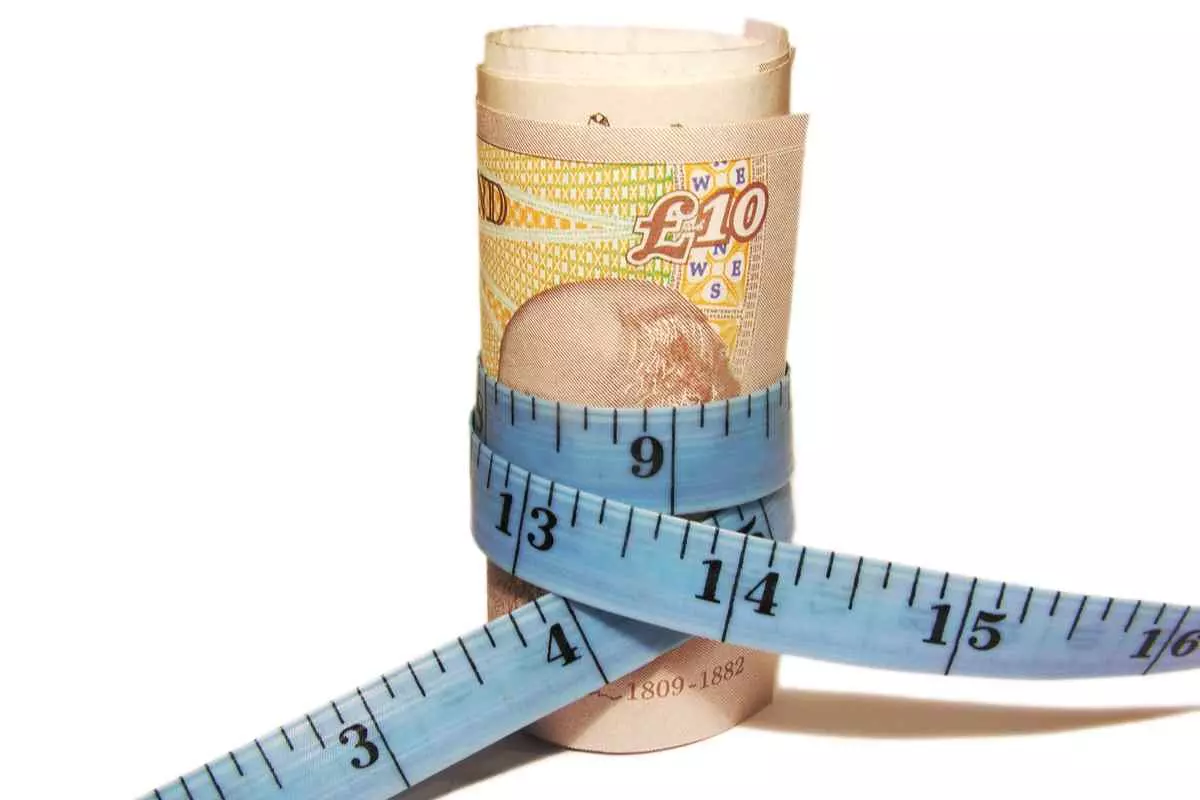Saving money can be a quite daunting responsibility for adults. According to the Money Advice Service, you should have at least around £3,000 in your emergency savings. Although this may sound difficult to achieve, we can offer you several tips to save money. From practical tips on cutting unnecessary expenses to uncovering hidden gems within your budget, we’ve got you covered. Whether you’re a seasoned saver or just beginning your financial voyage, our expert insights will provide you with actionable steps to transform the way you manage your finances. Join us as we delve into the realm of smart saving and discover how small changes can lead to substantial financial gains.
How to Start Saving Money
There are several saving techniques you can utilize without it becoming a struggle or challenge. Tracking your spending, budgeting, and selling old items is one of the many approaches you can take to become a financial wizard.
1. Track Your Spendings
Tracking your spending isn’t just for accountants. This savvy habit not only sharpens your awareness but also makes you less prone to impulsive spending. Small expenses? They add up like puzzle pieces forming a big picture – your bank statement. It is particularly important to track smaller amounts of money spent because these add up quickly and can make a huge dent in your upcoming bank statement.
2. Budgeting Brilliance
Budgeting isn’t a bore; it’s your financial GPS. Think of it as Marie Kondo-ing your expenses – if it doesn’t spark joy, it’s out! Apps like Monzo lend a helping hand, categorizing your spending like a boss. And remember, if the purchase didn’t set off fireworks in your heart, it’s probably not worth spending your money on.
3. Avoid Dining Out
We’ve all been tempted by the siren call of takeout, but home-cooked meals are the most healthy and wallet-friendly option. Think about it – bulk buys and meal prep all offer a break for your wallet. According to Money Transfers, UK households could save up to £760 per year by cutting back on restaurant spending and eating at home instead. Occasional dining out is fine, but remember, moderation is key. Your wallet will thank you, and your taste buds won’t sulk.
4. Pay off Your Debts
According to The Balance, paying off your debt can reap several benefits — such as reducing stress, increasing financial security, and improving your credit score. Make sure you take care of your debts before you focus too much on money-saving ideas. The interest you are paying for your loans and debts is usually higher than the interest rates you get in savings accounts. Prioritize paying them down – it’s like freeing up your financial chakras before embarking on the journey of saving.
5. Savvy Shopping
Swap the glitz for the goods. Store-brand products are like hidden treasures waiting to be discovered. Embrace the art of bulk shopping and befriend discounts. Don’t forget: loyalty cards and price matching are your allies! Some affordable clothing brands include:
- Zara
- Banana Republic
- Quince
- Everlane
- Gap
6. Use Your Change
Ever thought pocket change could be your secret weapon? Gather those coins and let them work their magic on your railway card or groceries. It’s like a tiny army of cents marching toward your financial freedom. Here are some ways you can put your change to good use:
- Special Purchases: Dedicate your saved coins to a specific goal. Whether it’s buying a book, treating yourself to a nice meal, or even putting it toward a holiday fund, knowing there’s a reward can make saving coins even more satisfying.
- Pre-loaded Cards: Many cities offer cards for public transport that can be recharged with coins. This way, your change can directly contribute to your daily commute.
- DIY Projects: Use coins to create art projects or DIY gifts. From coin-covered photo frames to jewelry, there are countless creative ways to repurpose your change.
- Support Charity: Consider donating your saved up change to a cause you care about. It’s a small gesture that can make a big difference over time.
7. A Pound a Day
A Pound a Day is a rule of thumb that my grandma taught me as a kid. If an item you want to buy is £25, it will be worth it if you use it 25 times. So if there is a designer bag that is £3,000 and you only use it 200 times, it is not worth it. There are certain exceptions to this rule, such as housing and automobiles, but for the most part, it has kept me from purchasing items and things that I do not need.
8. Make Use of Older Items
If you have a bunch of stuff at home that you do not use, consider selling these items online. What may be junk to you could be something someone else really needs or wants. One lad’s trash is another lad’s treasure.
There are apps and websites that can help you sell your old items. You can look into selling your items on eBay, Facebook Marketplace, Gumtree, or Depop. Furthermore, if you are interested in thrifting and enjoy it as a hobby, you can buy and resell. This could help you make money while participating in a hobby you enjoy doing.
9. Check Your Monthly Subscriptions
Unleash your inner detective on those sneaky subscriptions. Do you really need them all? Ask yourself if you could live without those subscriptions or try a month without them. These add up on your monthly bank statement and dent your paycheck, so be sure to reevaluate and assess whether you need them in your life. A great tool you can use is Rocket Money, which identifies which subscriptions you are paying for that you no longer need.
10. Open a Savings Account
After all your debts and loans have been paid off, you can start looking into making more out of your money. Most people opt for the safe option of a savings account. Here are the main points to remember:
- These typically earn around 1% to 3% interest, which is tax-free. Note that some rates only last for around a year
- People aim to have around £3,000 as an emergency fund in case something unplanned happens.
- Some savings accounts require a monthly deposit.
- If your work provides a direct deposit, you can have part of your paycheck directly deposited into your savings account.
- Some accounts limit the number of withdrawals
- You can open up multiple savings accounts across different banking institutions.
- £85,000 per person per institution is protected by the UK under the Financial Services Compensation Scheme (FSCS). After you reach that amount, it is recommended that you switch to a different banking institution so that your money is guaranteed protection.
Setting up a high-interest money savings plan can yield you a good return within a few years.
Where to Save Money
There are many places where you can save your money. Investing your money is an option for those willing to risk losing their money. The most popular places to invest your money are in shares, bonds, and funds.
You buy shares in the stock market to make a profit. This is a huge gamble as you can lose your money. It is good to remember that the more money you want to make, the more risk you take.
Strategies to Save
There are many avenues and strategies for saving and growing your money. It’s crucial to remember that not all saving methods are created equal, and your financial goals and risk tolerance will guide your choices. Here’s an in-depth look at some of the most potent strategies you can consider:
Diversify Your Savings: It’s a well-acknowledged financial principle to spread your savings across various types of accounts or investments. By diversifying, you reduce the risk associated with any one particular asset or savings avenue. Think of it as not putting all your eggs in one basket.
Understand Basic Investment Options: Before diving into the world of investments, acquaint yourself with some fundamental options:
Stocks: These represent ownership in a company and constitute a claim on part of the company’s assets and earnings.
Bonds: These are essentially loans that you give to companies or the government in exchange for periodic interest payments plus the return of the bond’s face value when it matures.
Mutual Funds: Mutual funds together money from many investors to purchase a diversified portfolio of stocks, bonds, or other securities. While these are just the basics, starting small and learning as you go can prove immensely beneficial. Take incremental steps and grow your knowledge base over time.
Leverage Compound Interest: The magic of compound interest can’t be overstated. It’s about earning interest on the interest you’ve already earned. Look for savings accounts or investments that offer competitive interest rates to truly harness this power. Over time, compound interest can significantly grow your savings.
Consider Tax-Advantaged Accounts: Individual Savings Accounts (ISAs) are a great example. They allow your savings or investments to grow tax-free, and there’s a variety of ISAs available, including Cash ISAs, Stocks & Shares ISAs, and Innovative Finance ISAs. If you’re eligible, it’s a good idea to leverage their benefits.
Think About Property: Property can be a reliable long-term investment option. While buying a home serves the dual purpose of providing shelter and acting as an investment, there are other avenues too. Property funds, for instance, invest in a portfolio of properties or property company shares, allowing investors to get a taste of the property market without directly buying real estate.
Explore Online Investment Platforms: For those just dipping their toes into the investment waters, various online platforms can guide beginners. These platforms are user-friendly and often designed to accommodate smaller investment amounts. Robinhood and Acorn, for example, are popular investment apps used by millions of investors. Research to find the best fit for your needs.
Stay Informed and Review Regularly: The financial world is dynamic. Staying updated with market news and regularly checking on your savings and investments ensures you’re aligned with your financial goals and can adjust as needed.
Consult Before Big Moves: This cannot be emphasized enough. Always seek advice from financial experts, especially before making significant financial decisions. Their expertise can guide you, ensuring your moves are well-informed and calculated.
The previously mentioned options, such as investing in shares, bonds, and funds, fit within these broader strategies. But remember, as with any investment, there are risks involved. And while shares might offer potentially higher returns, they come with higher volatility. Always consider your financial goals and risk tolerance before making investment decisions.
Quick Lifeline: Payday Loans
If you happen to get yourself in a situation where you need cash, you can apply for an online payday loan or a short-term payday loan. These can help pay off something that you need right away.
Payday loans need to be paid back with your next paycheck, or you can risk going into more debt. Be sure to pay these back as soon as possible. It is best to do your research beforehand as some lenders have fixed interest rates, and most lenders check your credit score. Payday loans are temporary solutions that can help solve problems that need to be addressed right away.
Before making any big financial decisions, talk to loved ones and do some research. There are many resources online that can help you budget and learn how to save money.
Final Thoughts
In a world of financial ebbs and flows, embracing smart saving is like harnessing wind for your sails. A mix of savvy strategies, self-awareness, and calculated decisions can lay the foundation for a secure financial voyage. So, remember to navigate with a dash of wisdom, a pinch of research, and a sprinkle of support from loved ones. Your future self will thank you as you set sail toward financial triumph!



